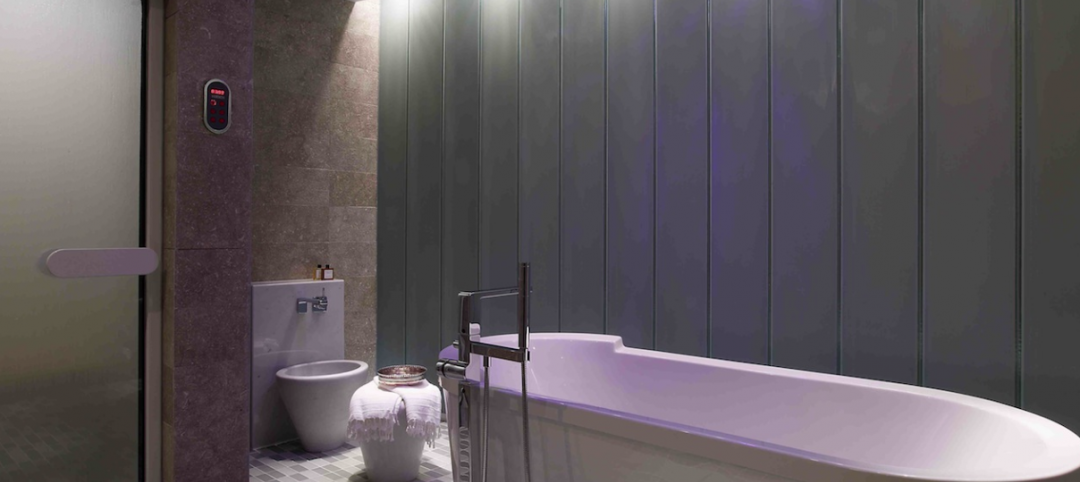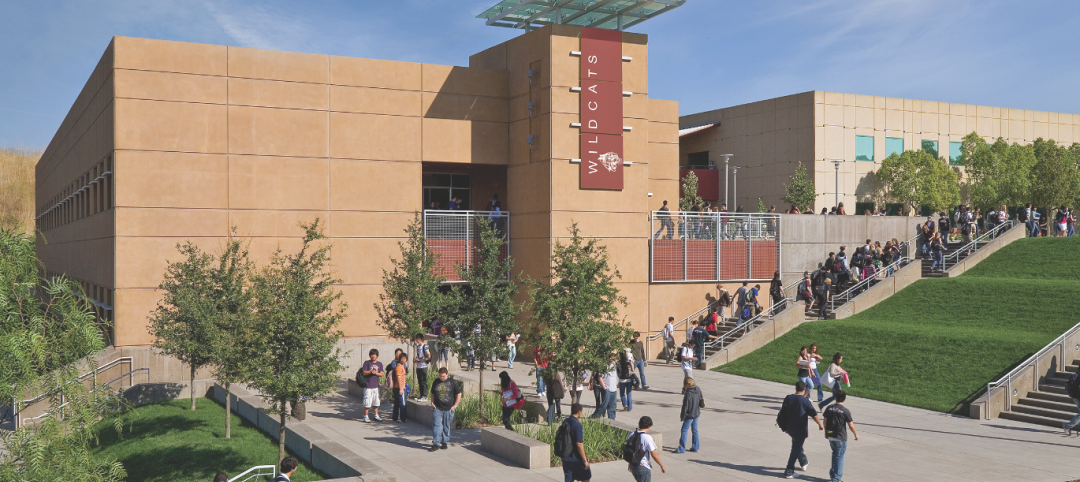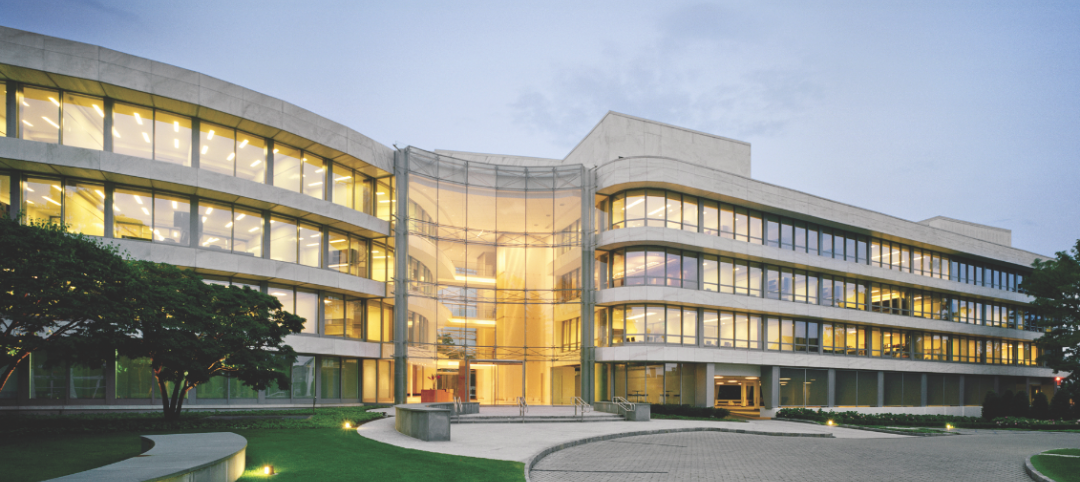The American Institute of Architects (AIA) and the Architects Foundation announced the signing of a memorandum of understanding with architecture firm HOK under which HOK will facilitate focus group activities in partnership with the AIA’s Design and Health Research Consortium, which works to advance university-led research in the area of design and health.
Under the agreement, the AIA and HOK will work with the consortium on its key priority: identifying and developing practice-focused opportunities for funded research, publications and tools in the area of design and public health.
The goal of the collaboration is to help members conduct research that can be translated into practice by architects and be beneficial to people.
“HOK is a bridge to the client community,” said Suzanna Kelley, FAIA, AIA’s Managing Director of Strategic Alliances and Initiatives. “This first collaboration with the private sector is designed to inform consortium members what their ultimate client – the public – needs from their groundbreaking basic research into how design can help improve public well-being.”
The new partnership will leverage HOK’s global network of architects and clients to support translation of existing research—and build the case for more practice-focused research going forward. Findings from the focus groups will be documented and used to help the Consortium universities direct their health research towards a more targeted, client-based approach. The goal of this new partnership is to help Consortium teams further understand how research can be used in architectural practice, and to further the conversation with the Consortium’s public health partners. Focus groups will occur for the next year, concluding in May of 2017.
“We look forward to facilitating focus groups for these institutions and our multidisciplinary design partners in architecture, interiors, landscape, planning and engineering—as well as our clients—in the effort to focus the next generation of research on this important issue,” said Anica Landreneau, Associate AIA, LEED AP, HOK’s director of sustainable design. “HOK and the AIA seek to promote the understanding and application of critical ideas, research outcomes and evidence that sustainable design truly will improve human health and wellness, in addition to ecological health.”
The focus groups will occur at or near the Consortium universities (full list can be found here). These meetings will document the findings of these important conversations. The partnership with HOK provides the AIA and the Foundation with a unique opportunity to engage a respected architectural firm with significant reach on a domestic and global scale. It also helps the AIA fulfill its primary mission of facilitating holistic, synchronous and multi-scale solutions that can empower its members to address a wide range of areas connecting design and public health.
The memorandum of understanding calls for the parties to document and summarize focus group feedback for a broader audience, including the Association of Collegiate Schools of Architecture (ACSA), Association of Schools and Programs of Public Health ASPPH the Consortium Network and participants. The agreement also calls for establishing a process for providing AIA Continuing Education for architect members at each focus group event.
Related Stories
| Dec 7, 2010
Product of the Week: Petersen Aluminum’s column covers used in IBM’S new offices
IBM’s new offices at Dulles Station West in Herndon, Va., utilized Petersen’s PAC-1000 F Flush Series column covers. The columns are within the office’s Mobility Area, which is designed for a mobile workforce looking for quick in-and-out work space. The majority of workspaces in the office are unassigned and intended to be used on a temporary basis.
| Dec 6, 2010
Honeywell survey
Rising energy costs and a tough economic climate have forced the nation’s school districts to defer facility maintenance and delay construction projects, but they have also encouraged districts to pursue green initiatives, according to Honeywell’s second annual “School Energy and Environment Survey.”
| Dec 2, 2010
GKV Architects wins best guest room design award for Park Hyatt Istanbul
Gerner Kronick + Valcarcel, Architects, PC won the prestigious Gold Key Award for Excellence in Hospitality Design for best guest room, Park Hyatt Macka Palas, Istanbul, Turkey. Park Hyatt Maçka Palace marries historic and exotic elements with modern and luxurious, creating a unique space perpetuating Istanbul’s current culture. In addition to the façade restoration, GKV Architects designed 85 guestrooms, five penthouse suites, an ultra-hip rooftop bar, and a first-of-its-kind for Istanbul – a steakhouse, for the luxury hotel.
| Dec 2, 2010
U.S Energy Secretary Chu announces $21 Million to improve energy use in commercial buildings
U.S. Energy Secretary Steven Chu announced that 24 projects are receiving a total of $21 million in technical assistance to dramatically reduce the energy used in their commercial buildings. This initiative will connect commercial building owners and operators with multidisciplinary teams including researchers at DOE's National Laboratories and private sector building experts. The teams will design, construct, measure, and test low-energy building plans, and will help accelerate the deployment of cost-effective energy-saving measures in commercial buildings across the United States.
| Nov 29, 2010
Data Centers: Keeping Energy, Security in Check
Power consumption for data centers doubled from 2000 and 2006, and it is anticipated to double again by 2011, making these mission-critical facilities the nation’s largest commercial user of electric power. Major technology companies, notably Hewlett-Packard, Cisco Systems, and International Business Machines, are investing heavily in new data centers. HP, which acquired technology services provider EDS in 2008, announced in June that it would be closing many of its older data centers and would be building new, more highly optimized centers around the world.
| Nov 29, 2010
New Design Concepts for Elementary and Secondary Schools
Hard hit by the economy, new construction in the K-12 sector has slowed considerably over the past year. Yet innovation has continued, along with renovations and expansions. Today, Building Teams are showing a keener focus on sustainable design, as well as ways to improve indoor environmental quality (IEQ), daylighting, and low-maintenance finishes such as flooring.
| Nov 29, 2010
Renovating for Sustainability
Motivated by the prospect of increased property values, reduced utility bills, and an interest in jumping on the sustainability bandwagon, a noted upturn in green building upgrades is helping designers and real estate developers stay busy while waiting for the economy to recover. In fact, many of the larger property management outfits have set up teams to undertake projects seeking LEED for Existing Buildings: Operations & Maintenance (LEED-EBOM, also referred to as LEED-EB), a certification by the U.S. Green Building Council.
| Nov 23, 2010
The George W. Bush Presidential Center, which will house the former president’s library
The George W. Bush Presidential Center, which will house the former president’s library and museum, plus the Bush Institute, is aiming for LEED Platinum. The 226,565-sf center, located at Southern Methodist University, in Dallas, was designed by architect Robert A.M. Stern and landscape architect Michael Van Valkenburgh.
| Nov 23, 2010
Honeywell's School Energy and Environment Survey: 68% of districts delayed or eliminated improvements because of economy
Results of Honeywell's second annual “School Energy and Environment Survey” reveal that almost 90% of school leaders see a direct link between the quality and performance of school facilities, and student achievement. However, districts face several obstacles when it comes to keeping their buildings up to date and well maintained. For example, 68% of school districts have either delayed or eliminated building improvements in response to the economic downturn.













